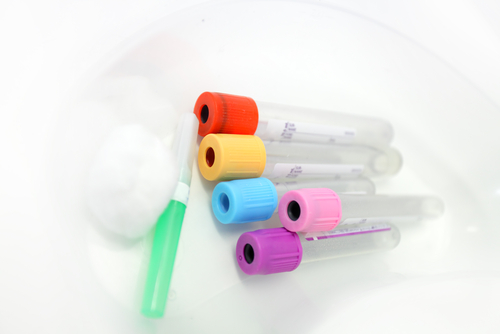 The question of whether anticoagulation (thinning of blood with medications) should be used in the treatment of pulmonary hypertension dates back more than 35 years. Very early observations of small blood clots in the lungs of PAH patients propelled interest in using warfarin (our oldest blood thinner).
The question of whether anticoagulation (thinning of blood with medications) should be used in the treatment of pulmonary hypertension dates back more than 35 years. Very early observations of small blood clots in the lungs of PAH patients propelled interest in using warfarin (our oldest blood thinner).
In the 1980’s and 1990’s several small studies were completed that suggested that in patients with severe idiopathic pulmonary hypertension (formerly referred to as primary pulmonary hypertension) there was a survival advantage to using blood thinners. During this time not all the data was consistent and 2 small studies showed no benefit to warfarin.
Two new studies were recently published adding further confusion to the question of whether blood thinners are helpful in PAH. Both studies are registries (patient data was entered into a database in real time and they were tracked prospectively). Before I describe the study results, it is important to acknowledge that registry type studies can never definitively address whether a treatment is effective. Because patients are not randomized to specific treatments or interventions, there is a high probability that the doctors caring for each patient made specific choices based on each patient’s clinical situation and these are not evenly distributed between the groups.
For example, imagine that there are two patients with PAH. They both have severe disease with similar heart catheterization, echo and six minute walk findings. One patient, however, has a problem with bleeding from her bowels. As a result, this patient would not receive anticoagulation whereas the other patient would probably receive anticoagulation. Now imagine that bleeding from the bowel is linked to a worse outcome in PAH. The net effect is that it appears that blood thinners are an effective therapy but in fact, the blood thinners may just be a marker for identifying patients at lower risk for death.
COMPERA Registry
In 2007, a collaboration of European PAH centers embarked on a prospective registry study. The COMPERA Pulmonary Hypertension Registry recently reported on their experience with anticoagulation in PAH. This large database included 1,283 patients who were followed for 3 years. Survival was better for idiopathic PAH patients treated with anticoagulation.
In contrast to the results seen in idiopathic PAH, patients with non-idiopathic PAH (patients with all other causes of PAH—such as connective tissue disease, liver disease, congenital heart disease), survival was worse in the PAH patients taking thinners.
REVEAL Registry and Anticoagulation in PAH
The REVEAL registry is the largest database of PAH patients with more than 3,500 patients included. Dr. Preston and colleagues used this database with a nested-design study (a subgroup of patients from the total database were selected using careful criteria) to create 4 groups of patients. Idiopathic patients treated with blood thinners and a comparison group not treated with blood thinners as well as a scleroderma associated PAH group of patients treated and a comparison group of scleroderma associated PAH not treated with blood thinners.
Their analysis showed that blood thinners made no difference in outcomes for idiopathic PAH patients. In contrast, amongst the scleroderma associated PAH patients, warfarin use was associated with significantly lower survival.
How Do We Put All this Data Together and Make Good Clinical Decisions?
In my practice I do not treat patients with scleroderma-related PAH with blood thinners unless they have been diagnosed with blood clots in the legs or lungs or have atrial fibrillation (an irregular heart rhythm that increases stroke risk). I also do not treat liver disease or congenital heart disease-related PAH with blood thinners. Amongst my idiopathic PAH patients, I tend to treat those with more severe PAH with blood thinners but I now engage in a discussion that highlights the uncertainty in the literature.
As we look forward, we clearly need a high quality prospective randomized placebo controlled clinical trial of blood thinners in idiopathic PAH. Unfortunately, we are unlikely to see this any time soon.
